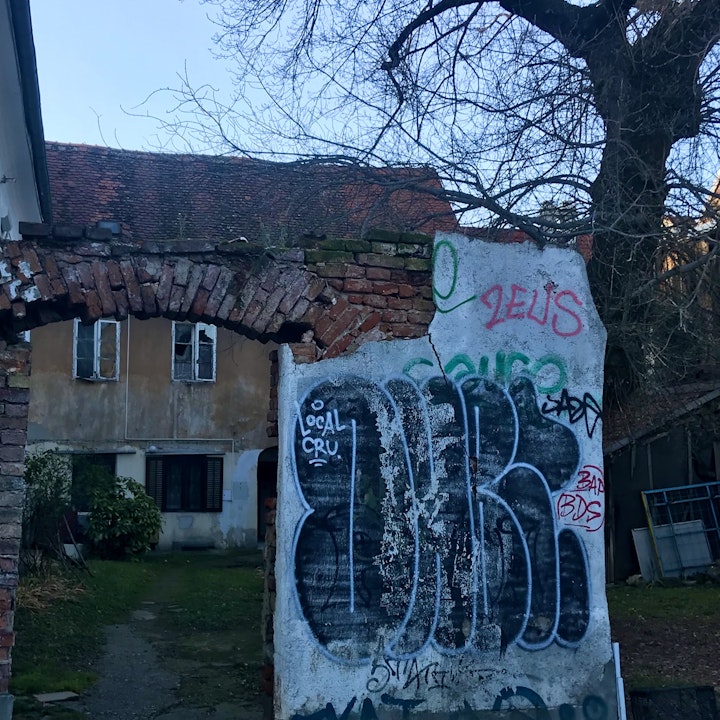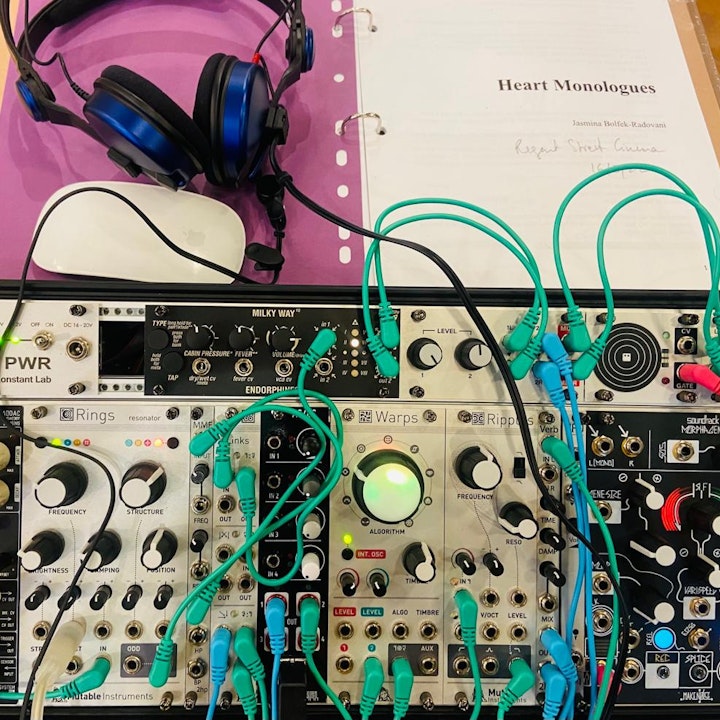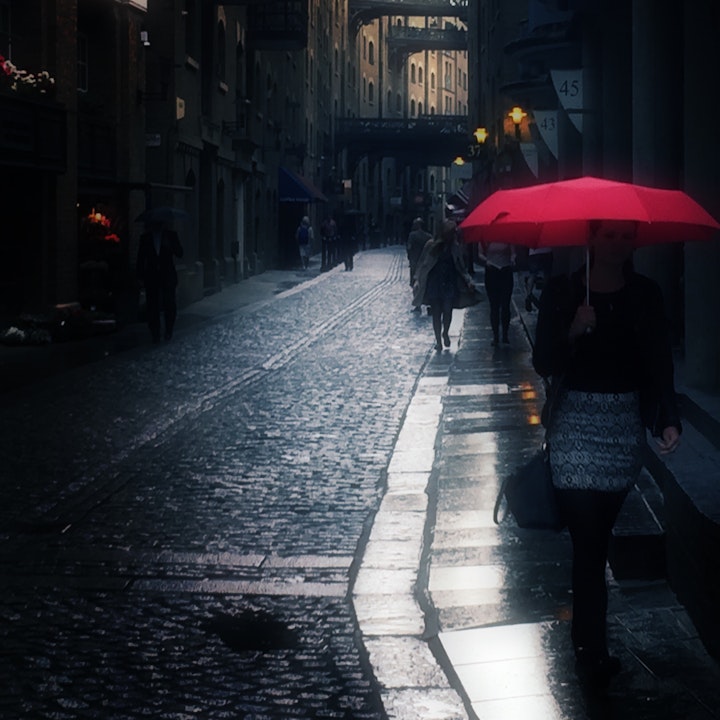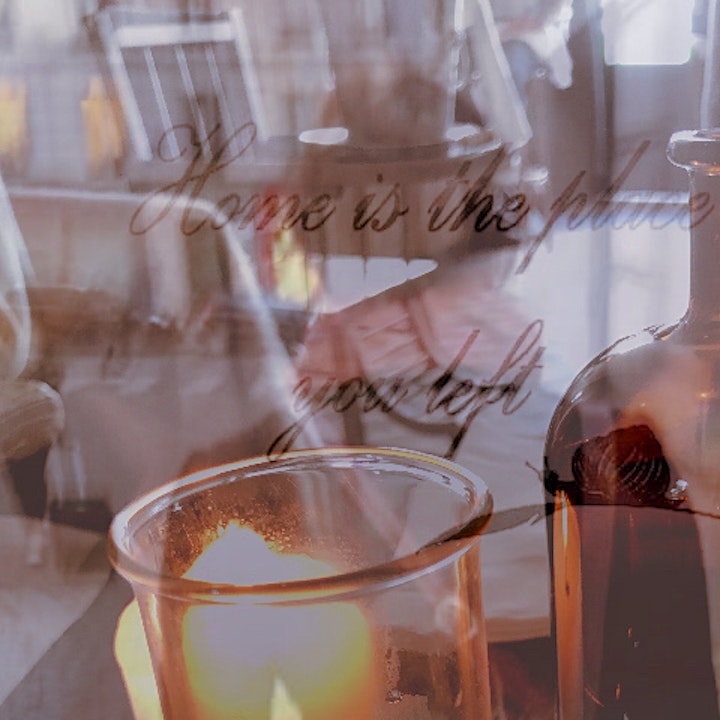"Tout le temps où je vivais en Algérie je rêvais d’arriver un jour en Algerie”
(Hélène Cixous, Rêveries de la femme sauvage, 2000)
I can finally begin to gather my thoughts after the online poetry reading of the multilingual poems from my “Reveries about language” collection in French, English and Croatian that took place last Friday. Recorded in London and Zagreb, the reading was streamed online, followed by a special live reading by two guests from Paris and Brussels, Delphine Salkin & Isabelle Dumont who I had the great pleasure of inviting to read with me. The event concluded with a panel discussion and questions and answers, excellently hosted by David Caddy, Editor, Tears in the Fence.
Year 2020 was (and still is) an unusual, strange year by all standards. The “Reveries” online reading marks for me the culmination of an incredible two years of working and collaborating with an amazing group of creative individuals despite the limitations and the challenges imposed by the pandemic during this past nine months. The “Reveries about language” recital was originally planned to be performed at the KIC (Kulturno informativni centar) in Zagreb on 20 March, but was cancelled due to COVID-19. Therefore, it felt even more special and incredibly uplifting to witness the engagement of so many people (47) who attended the online reading from Paris, Brussels, London, Zagreb, New York, Montreal, Athens, and other places, and to receive so many positive comments. Here is a selection in English, French and Croatian:
“Thank you so much for a lovely experience and for such a rich conversation.”
“I am glad that because of Covid this is happening virtually because it opens it to people like me on different continents. Thank you for this experience.”
“Real food for thought regarding belonging and identity, and ways of weaving different languages together. At a time when many are feeling down about Brexit, and an ‘isolationist mentality’, a real tonic to be among people who clearly love to explore and express themselves in different languages. It lifted my spirits!”
“I loved the musicality and circularity of the effect [of the different languages].”
“Speaking as a mono-linguist I particularly enjoyed hearing the cadences and the rhythms of the French and Croatian language poetry. Fascinating and surprising.”
“I really loved the use of video as well as the more direct readings. In particular, I loved the musical polyphonic effect of the weaving of languages and the repetition.”
“Multilingualism is a fascinating topic in all of its shades.”
“Le monde semblait à nouveau ouvert durant les « rêveries autour de la langue » partagées ce soir…”
“Tous les intervenants se sont donnés beaucoup de peine pour nous offrir une soirée culturelle et qui nous a poussés à réfléchir à certains problèmes de création artistique loin de l’ennui du Covid19.”
“…[Jasminine] pjesme su krasne, čak i kad slušam francuski koji ne razumijem, nekako dolaze riječi do srca. Sve u svemu ne samo da je bilo lijepo nego i zabavno!”
How did it all begin? My poetry journey started five years ago with the first public reading of the “Reveries about language” trilingual poem at the launch of The Still Point Journal on 8 November 2015. By that time I had written a number of multilingual poems in English, Croatian and French that I wasn’t sure how or where to publish. It felt great to have been invited to present my multilingual poetry for the first time to an audience of likeminded emerging poets and writers in the cosy atmosphere of The Gallery café in Bethnal Green in London. With time I was expecting that the “Reveries” poems would naturally age as the subject matter of “reveries” can be easily (mis)interpreted to mean “out of touch”, “out of place” or even “futile”; this feels especially true in the present times where reality has taken such a firm hold on our imagination(s). Yet, to my surprise the “Reveries” poems felt equally fresh during the reading last Friday – although also very different in terms of voice and meaning – as the first time I wrote them and read them out loud.
According to the Collins dictionary, a “reverie is a state of imagining or thinking about pleasant things, as if you are dreaming”. The dictionnaire du Larousse offers a slightly different definition that implies primarily a state of being lost in one’s thoughts: “Activité mentale dirigée vers des pensées vagues, sans but précis”. Nevertheless, in both definitions is present the experience of daydreaming. Unsurprisingly, it has taken me a long time to appropriate the concept of “reveries” and to fully understand both its place and meaning in my multilingual poetry practice; I think the act of reveries about language(s) lies embedded in all of the multilingual poems I have written. Reveries as recovery of (lost) language(s). As reinvention of language(s). Taken in that sense, the act of reveries about language(s) looks both to the past and to the future. It does not only signify (the state of) daydreaming and the nostalgic feeling for the thing lost; instead, it has the capacity to question and / or transcend nostalgia. It (re)opens rather than closes the doors of memory and forgetting. As the main character and narrator in Cixous’ Rêveries de la femme sauvage says at the beginning of the novel: “une porte vient de s’entrebâiller dans la galerie Oubli de ma mémoire, et pour la première fois, voici que j’ai la possibilité de retourner en Algérie, donc l’obligation…”.
I believe that the multilingual poetry experience cannot be complete without sound, without spoken voice(s), without embodiment. Without image(s). It is thanks to the voices, senses and minds of the people who speak it, receive it, read it and embody it that it comes alive. That it moves. Whatever the language. The language of the heart.
Title: “Reveries about language / Rêveries autour de la langue / Sanjarenje o jeziku”
Created by: Jasmina Bolfek-Radovani
Readers: Jasmina Bolfek-Radovani, Bridget Knapper, Robert Šantek.
Camera (Zagreb): Danko Ðurašin
Camera and editing (London): Iñigo Berrón
Music: Alan Chamberlain
Photography: Jasmina Bolfek-Radovani
Voice consultant: Kate Bligh
“Reveries about language” is funded by the Language Acts and Worldmaking project. This is a flagship project funded by AHRC Open World Research Initiative, which aims to regenerate and transform modern language learning by foregrounding language’s power to shape how we live and make our worlds.
Supported by:
Kulturno informativni Centar Zagreb (KIC)
Centre for Poetry, Queen Mary University of London
Centre 4 Digital Music, Queen Mary University of London
©Copyright Jasmina Bolfek-Radovani 2021. All rights reserved.






